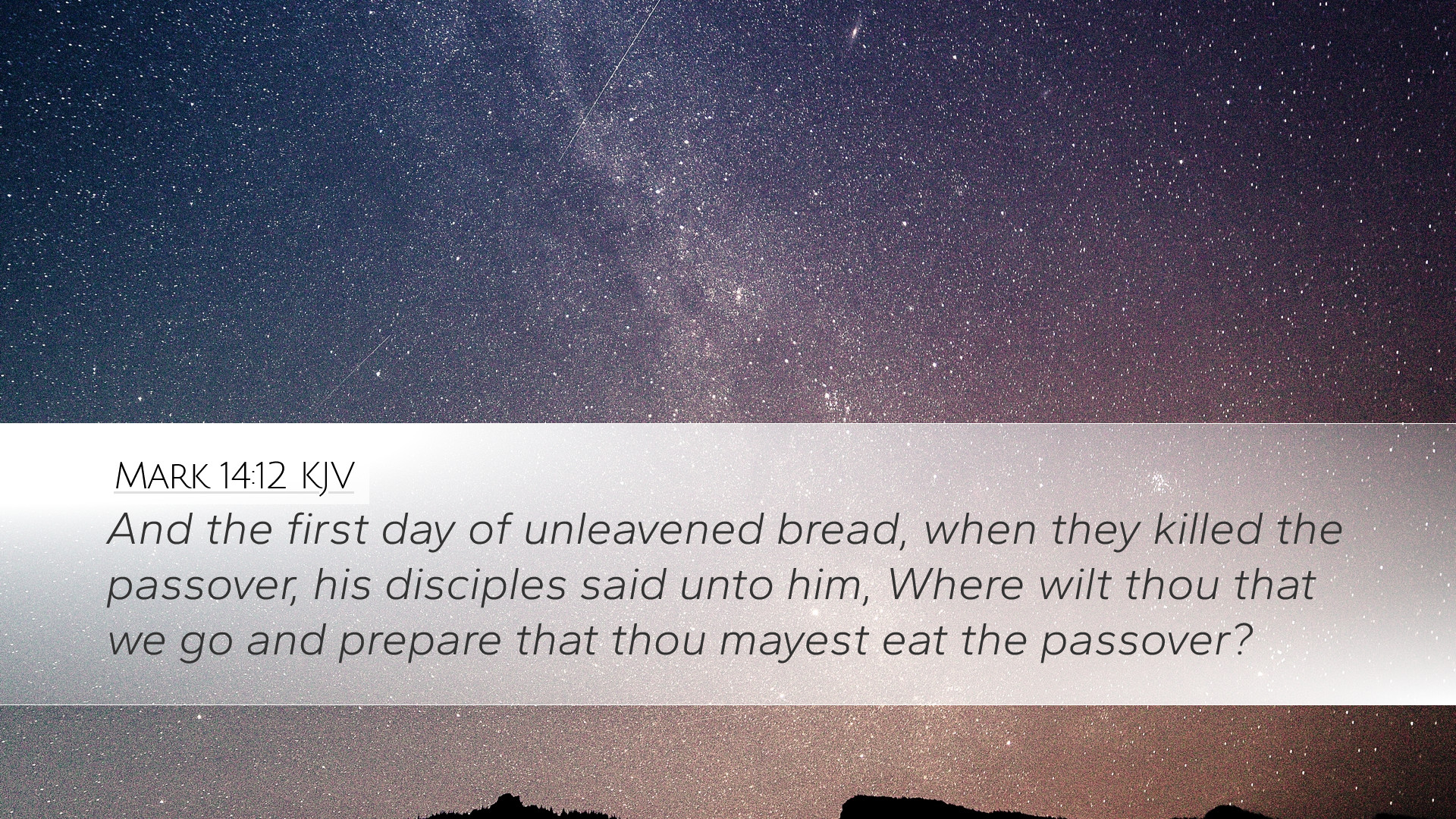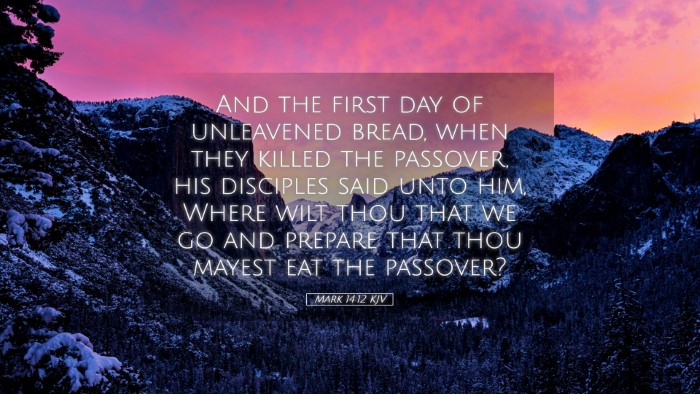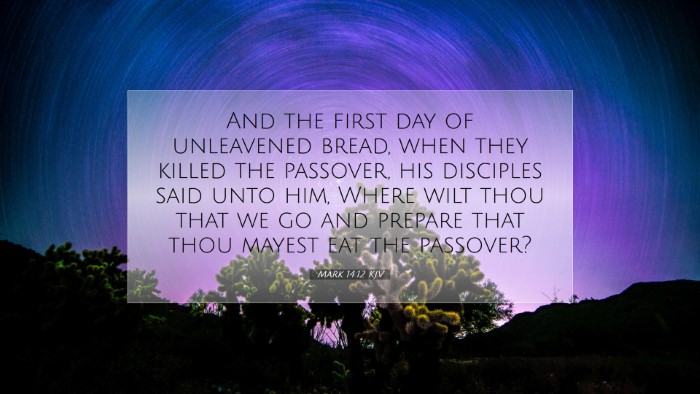Commentary on Mark 14:12
Mark 14:12 states: "And on the first day of the unleavened bread, when they killed the paschal lamb, his disciples said unto him, Where wilt thou that we go and prepare that thou mayest eat the passover?"
Contextual Overview
This verse situates itself within the narrative of the Last Supper, setting the stage for profound theological events in the Passion Week of Jesus Christ. The mention of the "first day of the unleavened bread" links to the Passover, a significant Jewish feast commemorating the Israelites' exodus from Egypt. The disciples' inquiry reflects their readiness to obey Christ's commands while also revealing an underlying sense of urgency associated with the impending events.
Insights from Commentators
Matthew Henry
Matthew Henry emphasizes the disciples’ involvement in the preparations for the Passover meal as an act of obedience. His commentary suggests that their question not only illustrates their deference to Jesus but also highlights their desire to fulfill the law regarding the Passover. Henry notes that this indicates a significant aspect of discipleship—one must be prepared for important spiritual observances. The urgency in their inquiry also suggests that they are beginning to comprehend the gravity of the moment.
Albert Barnes
Albert Barnes provides a closer exploration of Jewish customs surrounding the Passover. He points out that the Passover was a time when every Jewish male was required to prepare for the feast. Barnes highlights the significance of the paschal lamb, which is central to understanding the typological nature of Jesus as the Lamb of God. He posits that this moment foreshadows the ultimate sacrifice Jesus will make, drawing parallels between the lamb's blood that protected the Israelites and Christ's impending sacrifice for humanity.
Adam Clarke
Adam Clarke draws attention to the meticulous observance of rituals associated with the Passover and the unleavened bread. He discusses the importance of the timing, marking it as a time of reflection and unity among the Israelites. Clarke elaborates on the fact that the disciples' question is insightful; they seek to ensure that they are prepared, which he interprets as a spiritual readiness. He notes that their inquiry reveals a depth of relationship and trust in Jesus, as they look to Him for guidance in fulfilling the law.
Theological Implications
The inquiry from the disciples raises several theological themes worthy of reflection:
- Obedience and Readiness: The disciples demonstrate readiness to act on Christ’s instructions, highlighting an essential quality for all believers today—steadfastness in obedience when called upon.
- Symbolism of the Paschal Lamb: This event encapsulates core Christian beliefs regarding atonement and the sacrificial system, marking a transition from the Old Covenant to the New Covenant established by Christ’s blood.
- Collective Worship and Community: The gathering for the Passover signifies the importance of community in worship, a pertinent aspect for churches and congregations in modern times.
Applications for Pastors and Theologians
Given the depth found in Mark 14:12, pastors and theologians are encouraged to reflect on the following applications:
- Encouraging Obedience: Lead congregations to understand the significance of obeying Christ's commands as the foundation for spiritual growth and communal life.
- Understanding Sacrifice: Utilize the paschal lamb metaphor to shed light on Christ's atoning work, fostering deeper theological insights among congregants during communion services.
- Fostering Community: Emphasize the importance of gathering for worship and remembrance, drawing parallels between the communal aspects of the Passover and modern Christian practices.
Conclusion
Mark 14:12 encapsulates both a historical moment and a rich theological foundation for understanding Jesus's mission. The divine orchestration of events leading to the Last Supper serves as a poignant reminder of God's redemptive plan. In the context of communal worship and personal devotion, this verse invites an examination of one's readiness to partake in the significant aspects of faith. As we reflect on the insights from Matthew Henry, Albert Barnes, and Adam Clarke, may we be inspired to deepen our understanding and practice of the faith we share.


